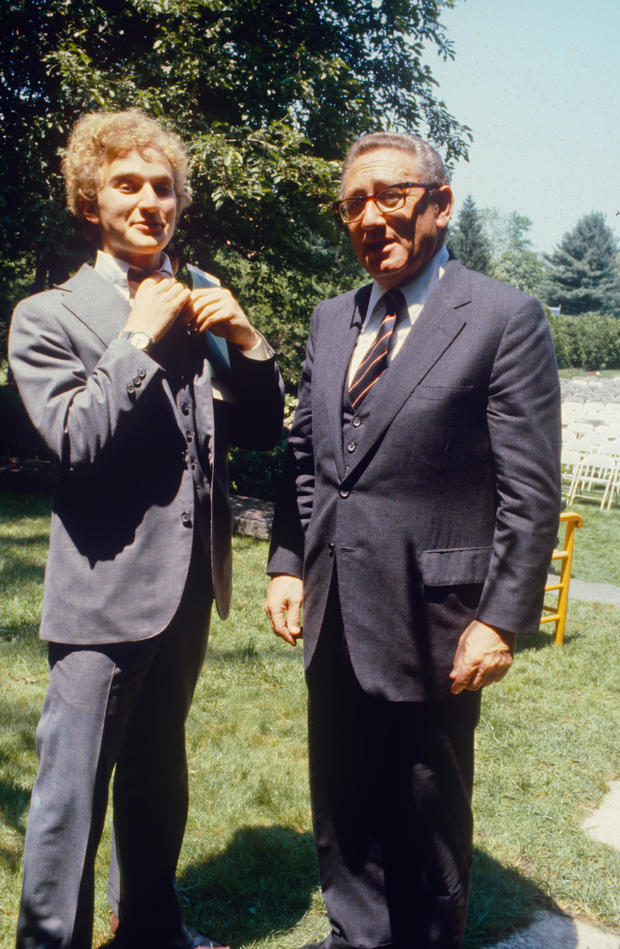Former Secretary of State Henry Kissinger’s death at 100 Wednesday has sparked conversation about the influential man’s life and legacy.
Kissinger, who served as secretary of state and national security adviser under both Presidents Richard Nixon and Gerald Ford, continued to be an active, albeit controversial, figure in political and diplomatic society for decades after.
Kissinger’s first White House role was as national security adviser to Nixon, despite his initial skepticism of the man. Nixon appointed the German-born Kissinger to the role after he took office in 1969.
Getty Images
Kissinger was behind the U.S. opening diplomatic ties with China, U.S.-Soviet arms control talks and the signing of the Paris Peace Accords to end the Vietnam War, for which he earned the Nobel Peace Prize. However, he was also instrumental in the U.S. carpet-bombing of Cambodia during the war.
AP
Bettmann Arhive/Getty
Photo 12/Universal Images Group via Getty Images
Dirck Halstead/Liaison
Kissinger and his first wife, Anne Fleischer, married in 1949. They divorced in 1964.
AP
Kissinger married his second wife, Nancy Maginnes, in 1974, by which time, he was secretary of state.
AP
The two remained married for the rest of Kissinger’s life.
Michael Loccisano/Getty Images for HBO
But prior to his second marriage, Kissinger became known for dating high-profile women while he was unmarried for his first years working in the White House. Women’s Wear Daily, in a 1971 article, labeled him “Washington’s greatest swinger.”
In 1971, then-27-year-old actress Judy Brown said she’d been dating Kissinger for over a year, and was hurt by Kissinger calling her a “publicity-seeking maniac, The Associated Press reported at the time.
David F. Smith / AP
He also dated actress Jill St. John, who played the first American love interest in the James Bond franchise.
Wally McNamee/CORBIS/Corbis via Getty Images
He was seen accompanied by other women throughout his early years in Washington, including CBS News television producer Margaret Osmer.
AP
Kissinger and his first wife, Nancy, had two children — Elizabeth and David. They are pictured next to Kissinger in this 1974 photo.
Klaus Schlagmann/AP
Mikki Ansin / Getty Images
Kissinger didn’t back away from foreign policy just because after leaving the government in 1977, continuing to dole out advice and speak with foreign leaders.
Consolidated News Pictures/Getty Images
David Hume Kennerly/Getty Images
“I work about 15 hours a day,” he told CBS News weeks before he turned 100, saying world leaders like China’s Xi Jinping or Russia’s Vladimir Putin would be likely to take his calls.
YURI KADOBNOV/AFP via Getty Images
Harry Hamburg/NY Daily News Archive via Getty Images
MANDEL NGAN/AFP via Getty Images
JIM WATSON/AFP via Getty Images


















